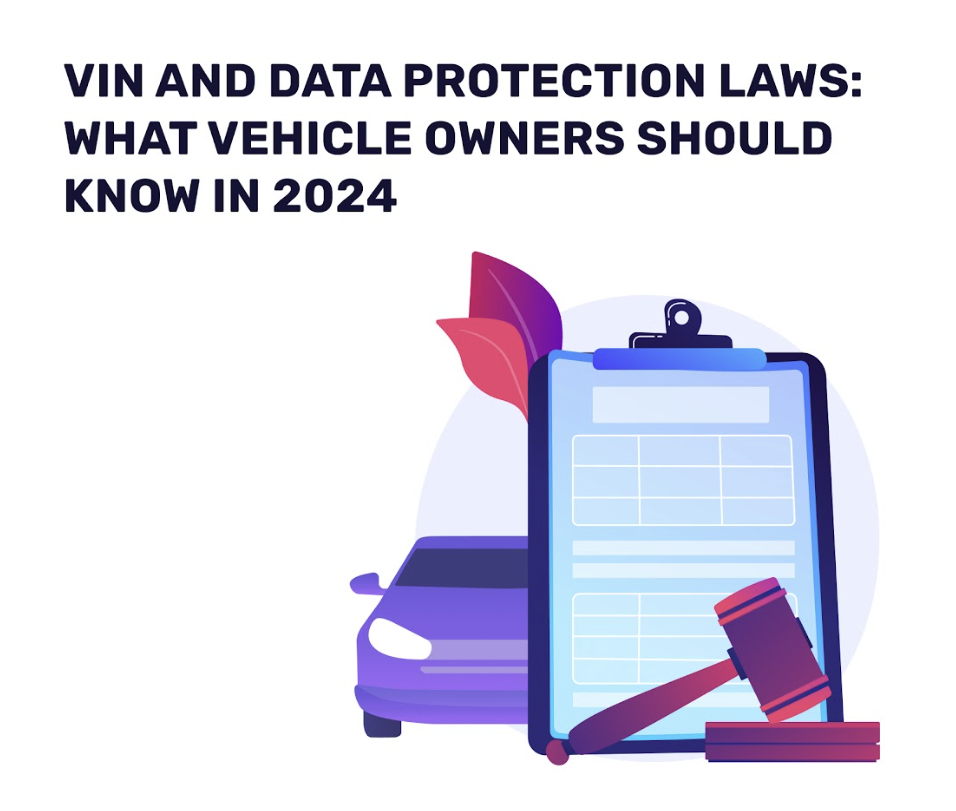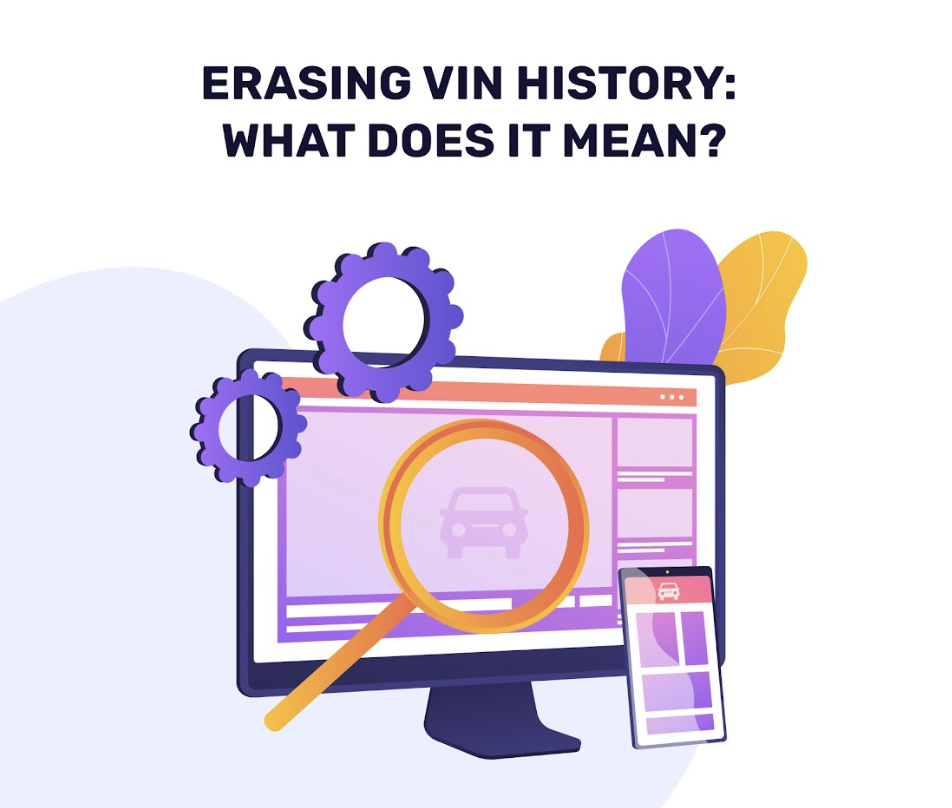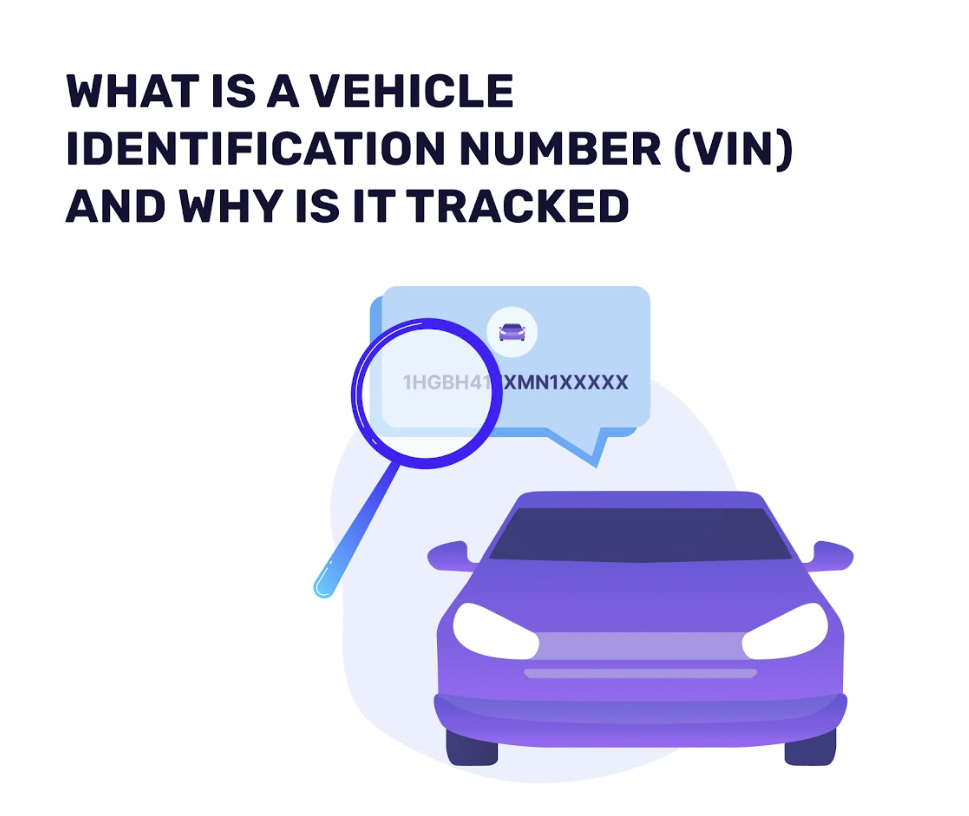
Particularly connected cars have hastened the rate of development in the automotive sector as we get ready to reach 2024. These developments raise major questions regarding the privacy of vehicle data, even as they greatly enhance functionality and convenience of use. U.S. car owners now prioritize learning how to secure their vehicles' data in a future where their vehicles may send and record information about their location, driving behavior, and even personal preferences. The ability to clear VIN from databases while maintaining ownership is useful in this situation.
Protecting the security and privacy of your car and its history on the expansive internet depends on protecting your VIN (vehicle identification number) data. Your VIN of the vehicle serves more purposes than just identifying it. It's a secret code that holds information that might compromise your security, the worth of your possessions, or both. That is why it is crucial to prioritize the protection of this data:
Car cloning and other criminal activities are often facilitated by fraudsters using VIN data. VIN protection keeps your car safe from being copied or sold illegally in other countries.
Manipulation of your vehicle identification number history, such as altering mileage or suppressing accident records, might occur if VIN data is not safeguarded. Strong VIN protection keeps your car data accurate and reliable for insurance and potential purchasers.
You run the risk of being falsely associated with things like past accidents, unpaid fines, or fraud if someone gets their hands on your VIN numbers and uses them inappropriately. You may protect yourself from these needless financial or legal issues by keeping your VIN secret.
Your VIN is associated with sensitive information that may be misused if unauthorized individuals were to get access to it. Your personal and financial information is best protected if this data is kept secure.
Your car and your peace of mind are both guaranteed by making VIN data privacy a top priority. Protecting your vehicle's history is crucial, whether you're purchasing, selling, or just taking it in for maintenance. Secure services like Hide.vin help with this.

Your VIN is like its passport. Like a person's social security number, it uniquely identifies a single vehicle and provides information about that car, such as its manufacturer, engine type, and more. This structure makes sure that no two cars made thirty years apart have the same VIN.
Among the many uses for vehicle identification numbers include tracking down replacement components, generating traffic penalties, and identifying older vehicles' original equipment and production dates. VINs are used by insurance companies to link coverage to a particular vehicle. Vehicle history reports, like CARFAX, are based on data connected with the VIN, not on the title, license plate, or physical paperwork. The reason is, barring manipulation, a vehicle's VIN remains inviolate.
Depending on your requirements and comfort level, there are a variety of maintaining privacy strategies from which to choose. Taking data off of public databases is a very effective method. You may restrict who can see certain details about your car, including who has owned it, how many miles it has traveled, and any service records or accidents.
By taking your VIN out of circulation, you protect it from fraudsters and others looking to manufacture cloned vehicles. Because no one would be able to utilize your car's data for malicious purposes, your reputation will be safe as well.
Professional services like Hide.vin are well-versed in erasing data from several databases and can help you successfully delete VIN. In doing so, they guarantee the process's secrecy and legal stability. Plus, you may take extra precautions by combining this strategy with others, such as keeping a close eye on your vehicle data or limiting who can access papers that include VINs.
Using these methods, you may safeguard your valuables from harm while yet keeping your anonymity intact.
Prospective purchasers of your car will probably investigate its background, which includes details on owners, accidents, and maintenance records. This data may help them, but it may also contain personal information you would like not to divulge. The selling procedure may be made more secure and easier with the VIN clean history.
Popular auction websites such as Bidfax, Bidcars, and AutoAstat are often used by prospective purchasers for their searches. If they use a search engine like Google to look for your car's VIN, they will probably discover a ton of pictures of vehicles from different auctions and websites that provide a ton of information on VINs. Technical errors, which the typical person isn't always aware of, may unfortunately cause such facts to be erroneous very regularly. To rectify these errors, you may want to think about looking into the history of the vehicle deletion services. This way, you can be sure that the information that is accessible is correct and represents your vehicle's current condition.
Clear car history is the best solution for vehicle owners who want to protect their privacy. Here's a step-by-step guide how to do it effectively:
Check what information about your vehicle is publicly available, including accident reports, ownership records, and registration data.
Contact a professional service to remove car history from databases. Try to find the right services for verification. After all, attackers may try to steal your data insidiously, as reported by FTC. One of the best choices for VIN removal is Hide.vin. Use its services to erase VIN history from various databases and provide a comprehensive privacy solution.
Check your vehicle's records regularly to make sure there is no new or unauthorized data.
By following these tips, you can greatly reduce the risk of fraud and identity theft while ensuring the privacy of your vehicle information.

Given the dynamic character of the automobile industry, the importance of protecting vehicle data, especially your VIN, has skyrocketed recently. It is important not only for sellers but for potential buyers too. More than just a string of numbers, VIN is the identity of your car and includes personal data that may be used improperly without security.
Being aware of the risks of making your VIN public helps you guard yourself against fraud, theft, and inappropriate use of personal information. Eliminating any evidence of your car's past from publicly accessible databases is a rather effective strategy. It protects your data by restricting access to the records of your car, therefore safeguarding the information of that vehicle.